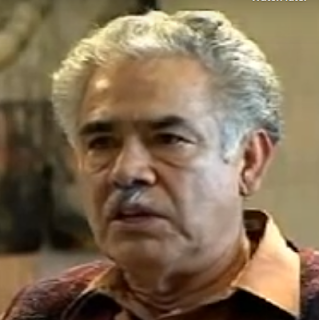Cesar Chavez, Corky Gonzalez
Ralph Abernathy, Corky Gonzalez, Peggy Terry
Angela Davis, Corky Gonzalez
Rodolfo Gonzales, June 18, 1928 (Denver, Colo.) – April 12, 2005 (Denver. Colo.)
VP candidate for Peace and Freedom Party (1968)
Running mate with nominee: Eldridge Cleaver (1935-1998)
Popular vote: 1512 (0.00%)
Electoral vote: 0/538
The campaign:
Driven chiefly by Californians, the Peace and Freedom Party was organized in the mid-1960s and went national in an attempt to link together various contingents of the Left. At their Presidential nominating convention Aug. 17-18, 1968 in Ann Arbor, Mich. where Eldridge Cleaver was selected over Dick Gregory, a schism had already become obvious. Gregory would go on to outpoll Cleaver on Election Day.
Cleaver, the author of Soul on Ice and the Minister of Information for the Black Panther Party, had little patience for the serious bickering that took place at the convention. When it came time to nominate a Vice-Presidential candidate, Cleaver suggested Youth International Party activist Jerry Rubin-- an idea that went nowhere as many considered Rubin to be too erratic, uncontrollable, and part of the Far Right of the Far Left. As the convention wrestled over this and other issues, Cleaver walked out in frustration and the matter was eventually left up to each state to select his running mate.
A member of the Socialist Workers Party took notes at this event and concluded:
Some Generalizations 1) The P&F movement is in a state of serious disarray. 2) The "coalition" with the Panthers had been badly shaken. 3) If Cleaver doesn't extricate himself from this mess soon he will rapidly and thoroughly discredit himself in the eyes of black militants inside and outside the BPP.
In April 1968, prior to being nominated, Cleaver was involved in a police shootout. Shortly after the election he felt obliged to jump bail and flee to Cuba.
The Iowa and Utah Peace and Freedom Party conventions selected Rodolfo "Corky" Gonzales as the VP nominee. A former boxer of some note, author of the epic poem I Am Joaquin (1967), and a leader in Mexican-American civil rights, Gonzalez had been an active Democrat starting in the late 1940s to the mid-1960s, but felt frustrated working within the major party system.
There are conflicting newspaper accounts concerning the blank spot on the Utah ballot for the Peace and Freedom Party option for President. One story has it that because Cleaver was too young to serve, he was stricken from the ballot while Gonzales (and the Electors) remained. The second story, according to the Aug. 25, 1968 Salt Lake Tribune, is that the Utah PFP majority opinion was to leave the position blank in spite of vigorous lobbying by supporters of both Eugene McCarthy and Eldridge Cleaver. Gonzales, from neighboring Colorado, was nominated as VP with an almost favorite son admiration. The convention also nominated the singer Bruce "Utah" Phillips for the US Senate.
The final vote: Iowa 1,332 (5th place, 0.11%) and Utah 180 (a very distant 4th place, 0.04%)
Election history:
1962 - Colorado House of Representatives (Democratic) - defeated
1964 - Colorado House of Representatives (Democratic) - ruled ineligible due to residency requirements
Other occupations: boxer, poet, agricultural worker, author, tavern owner, bail bondsman, one of the founders of Cruzada para la Justicia
Buried: ?
Notes:
Testifying to his fiery personality as a youth, an uncle said of Gonzales, "He was always popping off
like a cork. So, we called him Corky."
"It is important for us to realize that Chicanos did not immigrate to the United States, the United
States came to us."--Corky Gonzales.
Inducted into the Colorado Sports Hall of Fame in 1988.
Retired from boxing in 1955 with 63 wins, 11 losses, and 1 draw.
His father came to the US from Mexico.
Active in La Raza Unida Party
"I am Joaquin,
Lost in a world of confusion,
Caught up in a whirl of a gringo society,
Confused by the rules, Scorned by attitudes,
Suppressed by manipulations, And destroyed by modern society.
My fathers have lost the economic battle and won the struggle of
cultural survival."







